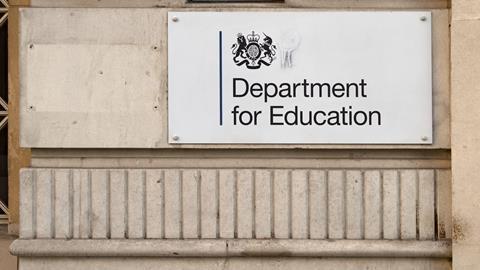It was a different world, 1994, and banks did things differently there. That year my Barclays ‘personal banker’ took me to lunch to discuss the renewal of my student overdraft facility. You can see the ‘moral hazard’ at play here – when I failed to budget properly I got a line of credit, a steak and ale pie and a pint of bitter.
Which is pretty much what’s happening to a growing number of councils that overspend their budgets for statutory services provided to children and young people with special educational needs and disabilities.
My own council has asked the Department for Education (DfE) for £23m to cover its deficit. That’s 1,483,871 steak and ale pies at today’s prices.
In return for this handout, the council will get something it wanted anyway – an instruction from DfE to take measures to cut its SEND spending on children and young people. You can see the moral hazard here. The mechanism for getting funds will be the council’s participation the DfE’s ‘Safety Valve Intervention Programme’.
A little background here.
Local authorities as a group have rather taken against their SEND responsibilities, and the manner in which they have resisted those responsibilities has exacerbated their ‘deficits’ in this area.
How so? For a start, councils try to avoid or delay assessing children and young people’s needs. Around a third of the cases in the SEND tribunal concern a failure to assess. Councils win less than 8% of cases they contest to tribunal.
If you don’t assess the need, maybe it isn’t there.
There has been an exponential increase in the number of cases heard at the SEND tribunal, and that rise has coincided with unquestionably brutal austerity cuts to local authority funding. Too often councils cut services they are not legally bound to provide, to the point where the only way for children and young people to secure services is by seeking the partial legal protection afforded by an Education Health and Care Plan (EHCP).
I am not being paranoid on this point, because local authorities and their representative bodies put their attitude to their SEND spending on the record.
Here’s Lorna Baxter, director of finance at Oxfordshire County Council and president of the Society of County Treasurers, writing in the Municipal Journal (MJ) in 2021: ‘High needs has the potential to bankrupt councils,’ she wrote. MJ itself identified the cause as an exponential increase in ‘child population, earlier identification of need, parents challenging the system and the extension of the eligibility criteria to those aged up to 25’.
Let’s be quite clear here. The ‘SEND funding deficit’ on this spending is down to bad budgeting; and the bad budgeting is down to bad planning; which in turn is down to a denial by local authorities of both their responsibilities and a grand scale underestimate of the level of need.
Budgets set by councils bear no relation to the need – only to the portion of the ‘pie’ local authorities would like to spend on SEND.
This is a sort of ‘bake your own deficit’ kit, and a fresh batch goes in the oven every year, year on year.
And so back to the Safety Valve Intervention Programme, which as of October last year had agreements with 14 councils.
My local council wants funds under the programme ‘in return for the delivery of the savings’. How are these are to be achieved? Well, in part the council plans to cut the number of children and young people with an EHCP – such that by 2026-27 the number will be 3,486, instead of the current projection of 3,595.
The level of legal obligation will be magicked down.
How else are savings achieved? In my borough, the council simply removes the provision of some services, or allows them to become so overstretched that for many children and young people they are notional or experienced only occasionally.
In the case of speech and language support, the council’s service has been outsourced to a provider which finds it cannot recruit speech and language therapists to provide the service.
What else? Yesterday the government published its SEND Improvement Plan. Experts are assessing the detail, but the plan confirms that there will be no change to the law on support for children and young people.
Publishing the plan, ministers said: ‘It is time to deliver a more dignified experience.’ Which is a nice aim, but the cuts committed to in the Safety Valve Intervention agreements being signed by a growing number of councils will tend to reduce both the dignity and the legality of the system.
But local authorities and DfE both get what they want here.
What councils won’t do as a result is get any better at setting budgets based on need.
After all, after my pie and pint with Barclays, I didn’t get better at budgeting – I just got better at finding a free lunch.
The Department for Education did not respond to the Gazette’s request for information.





































No comments yet